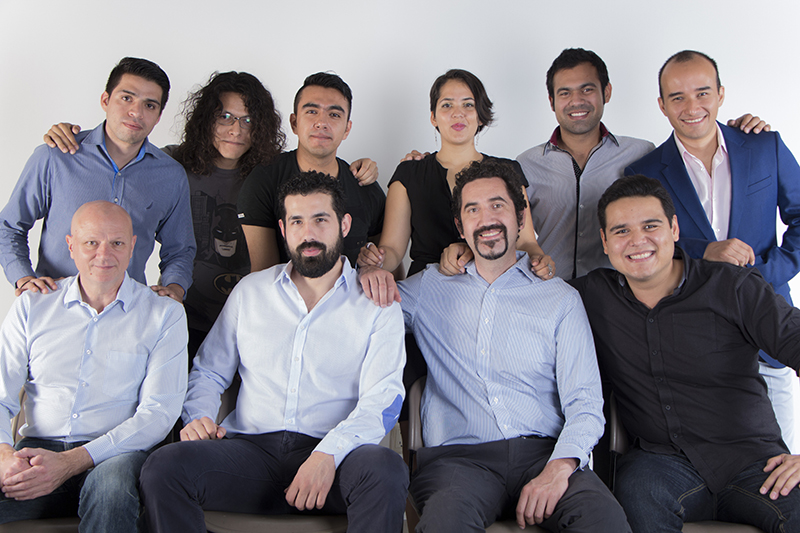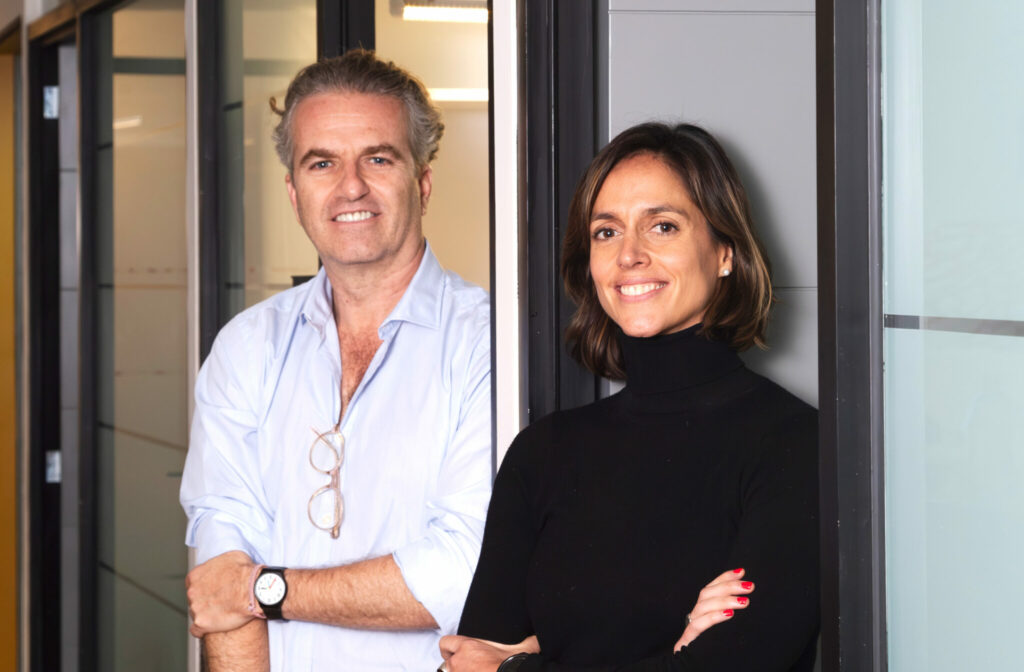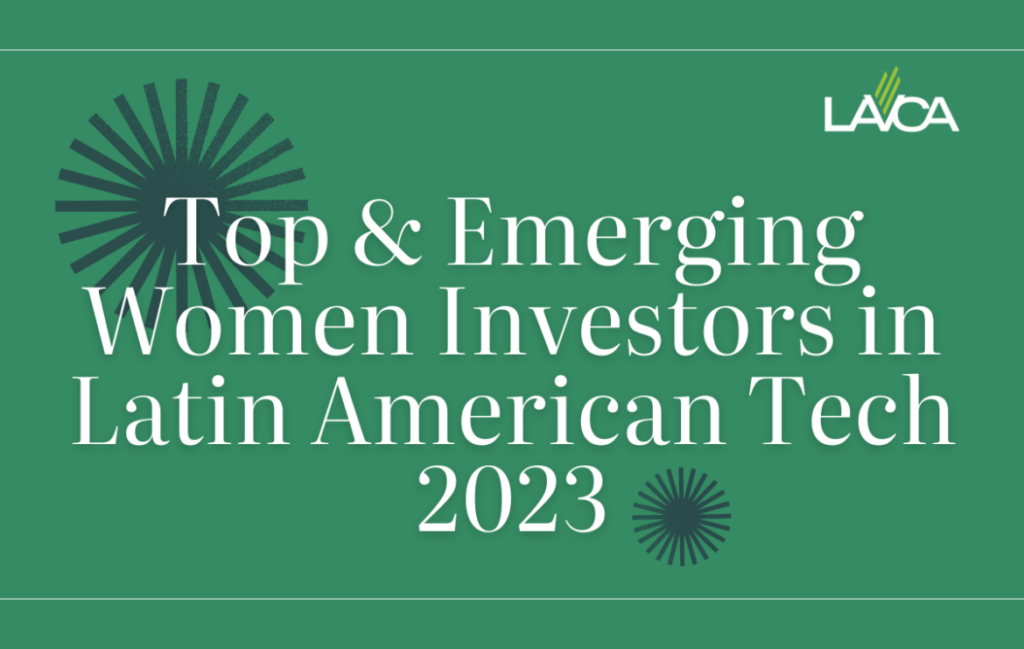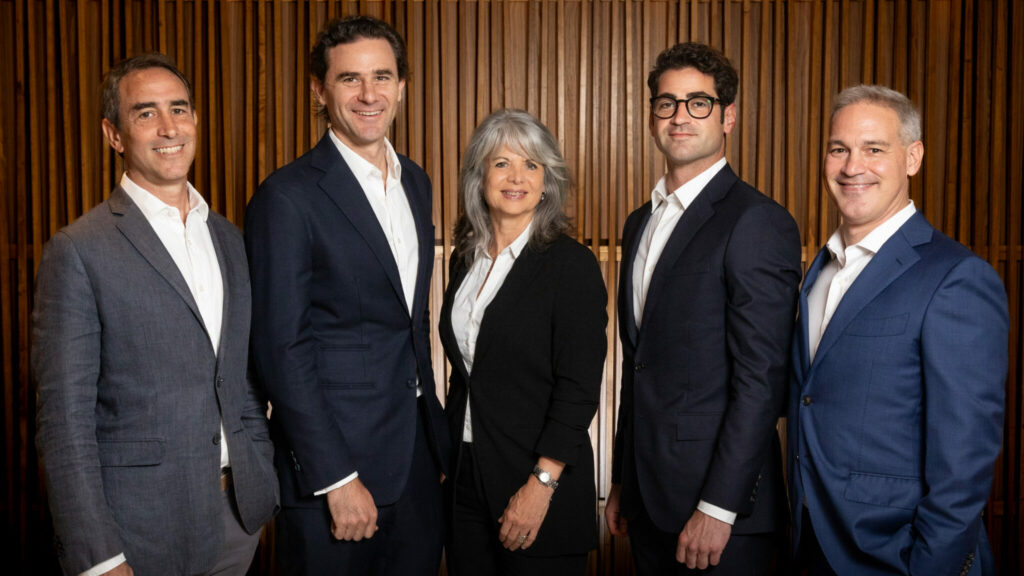Entrepreneur Profiles, Gender Diversity
Gaszen CEO & WeXchange Winner Jennifer Reyna on Energy Disruption
16 October 2018

Company: Gaszen
Representative: Jennifer Reyna
Title: CEO & Co-Founder
Jennifer Reyna founded Gaszen in Mexico in 2016 to disrupt how energy is consumed in Latin America. Gaszen’s IoT gas management solution puts an emphasis on building a community and empowering users with a powerful range and a fair price using embedded software technology.
In this interview, Jennifer Reyna talks about the benefits of building a startup in Mexico, the challenges of being a woman entrepreneur, and how winning WeXchange in 2017 helped her grow her business and network.
LAVCA: Tell us about Gaszen.
Jennifer Reyna: Gaszen is an IoT gas management platform headquartered in León, Mexico that enables users to transform their propane gas consumption experience. We are focused on Latin America and the US, and have clients in Chile, Argentina, Costa Rica, Peru, and the Dominican Republic. We are learning more about Latin American markets through small pilot programs and are exploring potential partnerships in the region.
The idea behind Gaszen came about from our personal experience of running out of propane gas, and the need to know if, as consumers, we were getting what we paid for. We all wanted to make a change in the world, and we wanted to show that we didn’t have to leave our country to make a hardware company. We could do it with Mexican investors and in the Mexican market for the entire world.
There are three billion people around the world using propane as their main source of energy. At the same time, two billion people use wood. We want to create a transparent, efficient, and more profitable propane gas industry by providing a better service that reaches more people.
 LAVCA: How does Gaszen seek to disrupt energy consumption?
LAVCA: How does Gaszen seek to disrupt energy consumption?
Jennifer Reyna: Gaszen helps people learn about their energy consumption. We track and share best practices and tips for better consumption. Currently, people and companies don’t know if it is convenient or not to change to cleaner energy sources. Our data introduces transparency that could lead to an energy transition.
We are a software company but our mission would not be possible if we didn’t have our proprietary hardware. We built an IoT solution with the best range and price in the market. What also makes us unique is that we can adapt our solution to each customer’s need. Our team created the embedded high-level, back-end, and front-end software, and partnered to create our PCB.
Years ago, this solution would have been impossible to take to market because it would have been prohibitively expensive and technically challenging. But today, thanks to the state of the art IoT technology, we made it happen.
LAVCA: What is your background? Tell us about your experience as an entrepreneur in Mexico. Have you founded any other companies?
Jennifer Reyna: Previously, we founded Brain Fusion and spent one year selling embedded software to companies in Sweden. I studied Business Creation and Development at the Monterrey Institute of Technology and Higher Education. Before I graduated, I started AgriDeliCo, where we used a special pouch technology to export harvested cacti from a rural community to Japan.
Being a hardware entrepreneur in Mexico has been a huge challenge. There are many barriers in the hardware industry all over the world, but in Mexico there is still very little knowledge on the design, manufacturing, and plastics involving IoT devices. We have struggled, but with the right partners and investors, have come a long way. We have learned of other Mexican hardware startups that are making amazing products and I’m sure we are leading the way for others.
LAVCA: What did you learn from founding previous companies that you were able to apply to the creation of Gaszen?
Jennifer Reyna: Team above all. At AgriDeliCo, I learned the importance of accountability and commitment. You need talented individuals but also disciplined individuals with a high level of patience and determination.
Investor/company alignment. At AgriDeliCo, we had amazing impact investors that cared about job creation in the community, but the vision we had differed in many ways to theirs. You need to have investors that believe in the purpose of the company and trust the team to make good decisions.
LAVCA: Why is Mexico a good market for Gaszen? How and where do you see the company expanding in the next one to three years?
Jennifer Reyna: Mexico is an amazing market for Gaszen because we are the second biggest propane consumer per capita in the world. We also have a chaotic ecosystem, so if we are able to succeed here, we should be able to replicate it in any other country.
In one to three years we want to be in three more countries in the Americas and one in Europe. We will have two new products in our family, and at least three partnerships with global gas suppliers.
LAVCA: What are the benefits and challenges of running a startup out of Mexico?
Jennifer Reyna: The cost of operations is, without a doubt, the best benefit of running a startup out of Mexico. A complete team in the US would consist of two engineers. For the same spend in Mexico, we have six engineers (two with more than twelve years of experience and patents) plus six business collaborators. The low cost of operations allows us to build our service and product at the same stage as some of our competitors with one-third of the funding.
The cost of operations is, without a doubt, the best benefit of running a startup out of Mexico. Our team in the US would consist of two engineers. For the same spend in Mexico, we have six engineers (two with more than twelve years of experience and patents) plus six business collaborators. The low cost of operations allows us to build our service and product at the same stage as some of our competitors with one-third of the funding.
The biggest challenges of running a startup out of Mexico are raising money & limited technology awareness in our partner and customer base. Firstly, hardware is expensive – a lot of testing, trying out batches, and recalls – all of that takes time. Time is money so we need investors with deep pockets that understand the impact, long-term profits, and the scale economy. Our investors in Los Angeles (Make in LA) advise us to build and sell slower while our Mexican investors tell us to build and sell faster. This is a huge challenge for any startup, trying to balance the mindset between American and Mexican investors.
Secondly, our most important customers are gas suppliers. In Mexico, most of them are not technology-oriented, so selling prototypes and first batches to them was almost impossible. We had to go to the people, residential customers that were early adopters of the technology, to run our first pilots. After those pilot programs, we would go back to gas suppliers with a more mature product.
LAVCA: What financing have you received thus far?
Jennifer Reyna:
2016 MXN$2m from family, friends, and angel investors.
2016 MXN$2m from La Salle University and an angel investor.
2017 MXN$7.4m from Bizrupt, La Salle University, Angels Nest, Fipaqro and two angel investors. (Mexico)
2018 US$75k Make in LA (US).
Cash Prizes
2015 MXN$100k Switch pitch competition
2016 MXN$1m Biggest Social Hackathon in the World
2017 MXN$600k Diamond winner in Masschallenge Mexico
2017 MXN$200k New Ventures Exponential
LAVCA: What resources have you used in your search for financing? Are you currently looking for additional financing?
Jennifer Reyna: Every resource we have. Three of us have literally shared a room in Mexico City to be at every networking event possible. We have explored signing contracts with gas suppliers, Kickstarter campaigns, pitched a lot of Mexican funds, pitched at international events, and more. We successfully applied for grants in technology and development and won cash prizes or services at national and international competitions.
Also, we have Arrow Electronics as a partner and they gave us an amazing line of credit for our first batch of three thousand devices.
We are currently raising a US$1m round with a US$300k follow-on investment from existing investors and we are looking for US$700k from new funds that want to invest in disrupting the propane gas industry and transforming the experience of three billion people consuming gas.
LAVCA: How have you/do you plan to use the financing? In general, how do you plan to grow the business?
Jennifer Reyna:
- Product Development – Improve current version, new version development, and a new product.
- Execute GTM Strategy – Start closing contracts with corporates, gas suppliers, and retailers. We will also build our community via PR and brand relevance.
- Order-Fulfillment – Manufacturing and production in Mexico or China
- IP- One patent pending and industrial design protection.
- Top Talent – Hire more engineers and sales people.
- International Expansion – Open three more offices in Chile, Perú, and France or the UK.
LAVCA: Gaszen won the WeXchange competition in 2017. How did this help advance the business?
Jennifer Reyna: The networking; amazing women helping ambitious women. We also gained exposure in the media and we are planning our trip to Silicon Valley to start building relationships with funds there. Additionally, WeXchange has promoted us and helped with introductions.
LAVCA: What is the most useful thing an investor can bring to the table besides financing?
Experience, warm introductions to potential customers, and knowledge on how to make things happen, even when they don’t work as you expected. Money helps but is the least important thing. An investor that doesn’t help sell or can’t figure out how to solve a crisis isn’t always the best investor.
LAVCA: What specific challenges do you face being a woman entrepreneur in Latin America?
Jennifer Reyna: None, I only get the best of it. There are funds that believe in women, investors that feel connected to you because they understand the challenges you face as a woman, and incredible programs such as WeXchange.
Plus, what better satisfaction than being in a male-dominated industry, where they can’t believe that I, a woman, am Gaszen’s CEO. After the first meeting, however, they start to take me seriously.
The challenges are in our minds, we can build the bridges to make whatever we set our minds to. It isn’t about gender, it is about courage.
LAVCA: Do you have any advice for women hoping to create and grow a business in Latin America?
Jennifer Reyna: Network with more women and men facing the same challenges as you, they most likely already solved problems that you haven’t and are willing to help you solve them, too.
Just do it. A lot of women I have talked to are scared of failing or, some women are afraid of what people would say if they leave their parenting duty to create their business. But you can always have balance. In the beginning, you will need all the help you can get, and it isn’t easy, but you will get better and better at it; you will be faster and more efficient and time will be on your side to manage it all.
Be ambitious. Sometimes we are of the mindset of doing the most we can with as little as we get, and that’s great, but you need to lose the fear of asking for more and think bigger.
Don’t be intimated, there isn’t a thing that you can’t do.
You may be interested in...
-

Is AI a Thing in Latin America? In Conversation with Hi Ventures
LAVCA sits down with Hi Venture to discuss their evolving thesis and vision for...
-

Top & Emerging Women Investors in Latin American Tech 2023
View LAVCA’s list of Top Women Investing In Latin American Tech. Women in venture...
-

The Future of B2B Startup Investing in LatAm: In Conversation with NXTP
NXTP Ventures recently reached a USD98m final close for NXTP Fund III, its third...
-

A 20-Year Journey: An Interview with Technisys CEO Miguel Santos
Company: Technisys Investors: KASZEK, Dalus Capital, Riverwood Capital Interview...